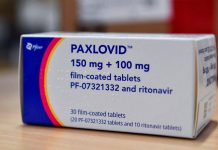When a foreign substance touches or invades your body, your immune system thinks it is under attack and eventually overreacts, sending antibodies to help fight the substance, typically called an allergen. Upon this allergic reaction, your skin becomes red, itchy, with rash-like eruptions.
Doctors often call this contact dermatitis (eczema). There are two types of contact dermatitis – irritant and allergic. Irritant eczema is caused by chemicals such as harsh cleaners, while allergic contact dermatitis is triggered by an allergen.
People may have an allergic reaction to something in the air, such as pollen, chemical sprays, powders, fibers, or even cigarette smoke. “Skin allergies can also cause hives and swelling deep in your skin, called angioedema,” says WebMD.
Once you develop a skin allergy, you could experience a reaction within a few minutes of coming into contact with an allergen, while in some cases, it might take a day or two.
Generic Medicines for Skin Allergy
The best way to prevent a skin allergy is to avoid the allergen that you are sensitive to. For instance, you may need to wear gloves to protect your skin from coming into contact with an allergen.
If you already have an allergic reaction, some over-the-counter remedies can help stop the swelling and relieve the itching. Generic OTC medicines for skin allergies include:
Corticosteroids: Topical creams and ointments containing corticosteroids work by reducing the inflammation caused by an allergy. Common examples of corticosteroids for skin allergies are
- Fluticasone
- Betamethasone
- Dexamethasone
- Hydrocortisone
- Triamcinolone
- Alclomethasone
- Clobetasol
Antihistamines: These are available as OTC or prescription medications. Antihistamines work by blocking the secretion of histamines – the chemicals released when an allergic reaction takes place. Histamine is responsible for causing inflammation. Following antihistamines are advised for skin allergies:
- Cyproheptadine (Periactin)
- Desloratadine (Clarinex)
- Hydroxyzine (Vistaril)
- Levocetirizine (Xyzal)
- Cetirizine (Zyrtec)
Topical Immunomodulators: These are topical medicines used to treat skin allergies, which are used if other medications fail to help. These drugs may cause stinging, burning, irritation, and itching at the application site. Topical immunomodulators include:
- Tacrolimus (Protopic Ointment)
- Pimecrolimus (Elidel Cream)
Calamine lotion, cold compresses, and oatmeal baths have also been found effective in treating skin allergies. Most skin allergies are not life-threatening. However, some people have a severe reaction called anaphylaxis, which might quickly spread throughout your body and make it hard to breathe, according to WebMD. Epinephrine is used to treat life-threatening anaphylaxis.























